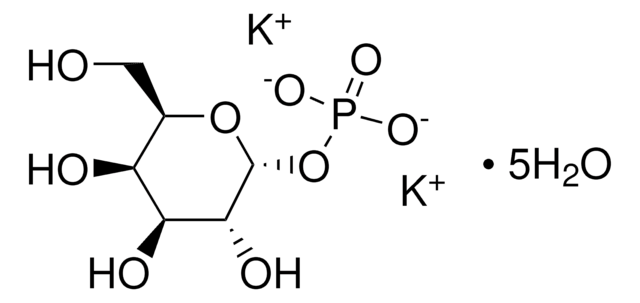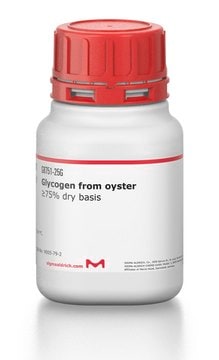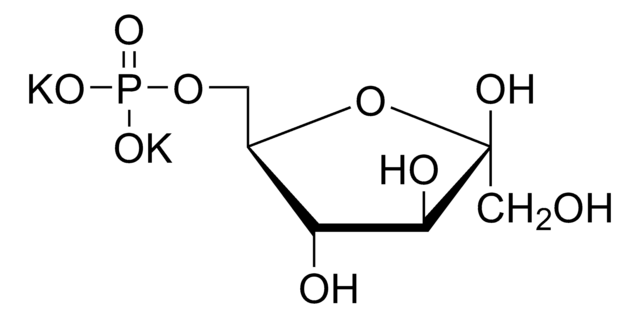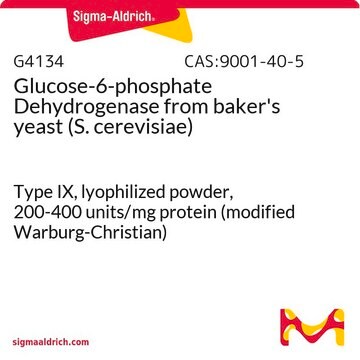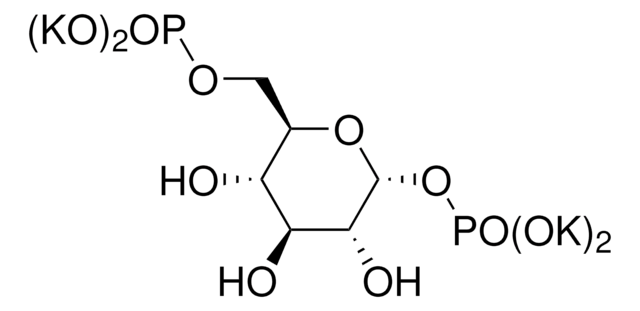G6875
α-D-Glucose 1-phosphate dipotassium salt hydrate
≥97% (HPLC)
Synonym(s):
α-D-Glucopyranose 1-phosphate, Cori ester
About This Item
Recommended Products
biological source
synthetic
Quality Level
Assay
≥97% (HPLC)
form
powder
impurities
glucose, essentially free
color
white
solubility
water: slightly soluble 50 g/L
storage temp.
−20°C
SMILES string
[K+].[K+].[H]O[H].OC[C@H]1O[C@H](OP([O-])([O-])=O)[C@H](O)[C@@H](O)[C@@H]1O
InChI
1S/C6H13O9P.2K.H2O/c7-1-2-3(8)4(9)5(10)6(14-2)15-16(11,12)13;;;/h2-10H,1H2,(H2,11,12,13);;;1H2/q;2*+1;/p-2/t2-,3-,4+,5-,6-;;;/m1.../s1
InChI key
VOQGDSVKCMGEFO-FBNUBEQJSA-L
Looking for similar products? Visit Product Comparison Guide
General description
Linkage
Preparation Note
Other Notes
Storage Class Code
11 - Combustible Solids
WGK
WGK 1
Flash Point(F)
Not applicable
Flash Point(C)
Not applicable
Personal Protective Equipment
Regulatory Listings
Regulatory Listings are mainly provided for chemical products. Only limited information can be provided here for non-chemical products. No entry means none of the components are listed. It is the user’s obligation to ensure the safe and legal use of the product.
JAN Code
G6875-100G:
G6875-10G:
G6875-VAR:
G6875-5G:
G6875-25G:
G6875-BULK:
G6875-1G:
Choose from one of the most recent versions:
Certificates of Analysis (COA)
Don't see the Right Version?
If you require a particular version, you can look up a specific certificate by the Lot or Batch number.
Already Own This Product?
Find documentation for the products that you have recently purchased in the Document Library.
Customers Also Viewed
Our team of scientists has experience in all areas of research including Life Science, Material Science, Chemical Synthesis, Chromatography, Analytical and many others.
Contact Technical Service


